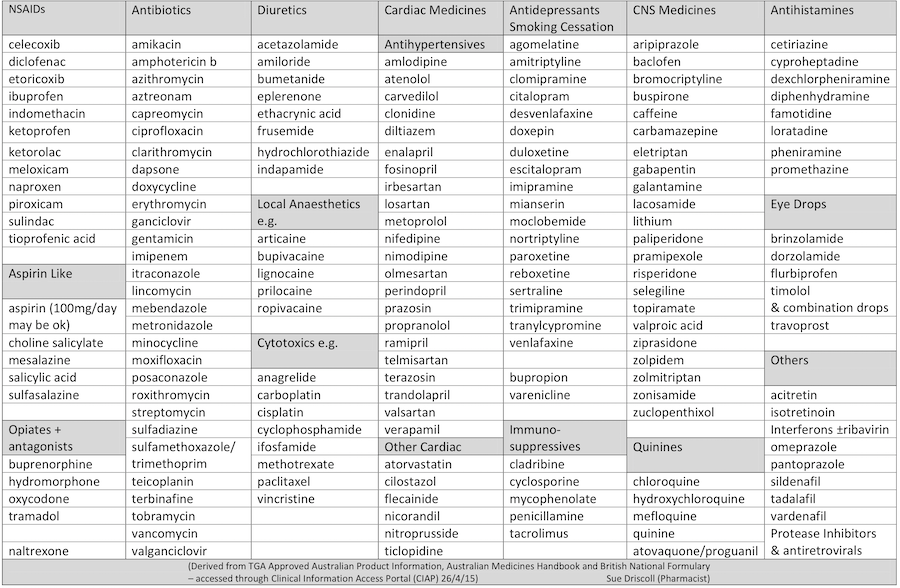Ototoxic Drugs Affect Hearing and Balance
HEARING LOSS
What are ototoxic drugs?
Ototoxic drugs are medications that can damage the structures of the inner ear and negatively impact the functions of hearing and balance. Ototoxicity may be caused by several types of medicines such as antibiotics to treat serious infections, drugs to treat cancer, high blood pressure and neurological diseases. Also, some medication considered harmless such as aspirin may cause tinnitus and hearing loss.
We need to be alert to the misuse of medication especially to those who already have some degree of hearing loss. What are the risks of hearing loss or tinnitus from ototoxic drugs? The risks of ototoxicity are variable amongst the medications listed below. While the risk with aspirin is around 1% it is dependent on the length of time and dosage used and also if used in combination with other drugs. Diuretic drugs such as furosemide (6%), aminoglycoside antibiotics (10 to 30%) and cisplatin used n chemotherapy (50 to 60%).
Besides the particulars of each substance, the risk of developing hearing loss and tinnitus as a side effect of medication also depends on other factors such as:
Dose and duration of treatment
The speed of infusion of intravenous drugs
Alteration of renal function
Concomitant use with other ototoxic drugs
Age
Pre-existing hearing loss
Genetic predisposition
What are the signs of ototoxicity?
Tinnitus (noise in the ears), a progressive hearing loss in one or both ears, a sudden hearing loss, dizziness and/or loss of balance.
When one of the above symptoms is experienced during intake of any of the above-mentioned medications, you should ask for a referral to an audiologist for a hearing and balance test.
What to do?
Every medication has the potential to cause side effects. It is estimated that there are around 200 ototoxic drugs available in pharmacies with the potential to cause hearing and balance disorders. Users need to be alert to the appearance of any of the above-mentioned symptoms when taking such medications.
Sometimes it is unavoidable to use an ototoxic medication and in these instances, it is important to follow up with regular hearing tests to monitor any changes in inner ear function. Ultra-high frequency audiometry is particularly relevant as the initial loss of hearing is not always detected during standard audiometry.
In young pre-lingual children, these follow-ups are more complicated due to their inability to communicate their symptoms of tinnitus and hearing loss. Audiologists experienced in paediatrics should be sought for specialised hearing tests.
The hearing loss may be reversed in some cases of ototoxicity, providing the problem is identified early. In other cases, it is irreversible leading to the need of hearing aids or cochlear implants to restore hearing function and to reduce tinnitus perception.
List of ototoxic medications
It is important to consider that many of these ototoxic medications are required in severe conditions such as life-threatening infections, tumours, the crisis of hypertension etc. Nevertheless, their use should be taken with caution under appropriate medical supervision to minimise their potential side effects.
You can download a PDF table of this chart with potentially ototoxic medications available in Australia which have been reported to cause tinnitus and hearing loss.
References:
https://onlinelibrary.wiley.com/doi/pdf/10.1111/tmi.12608

